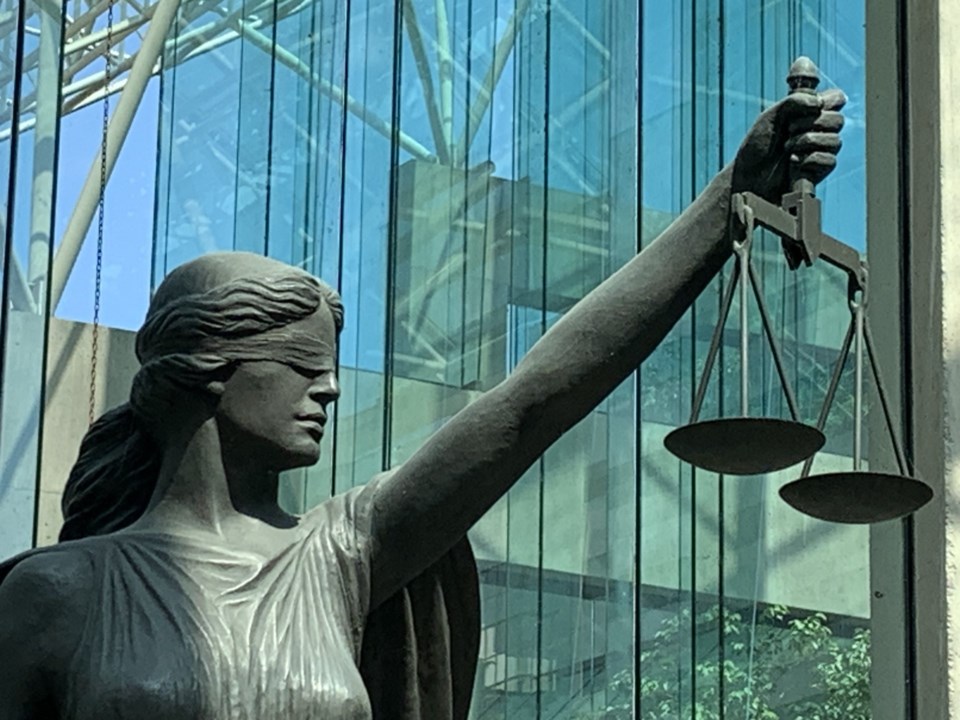A B.C. Supreme Court judge has barred a man from the province’s courthouses — including communicating with courthouse staff except with an appointment.
Justice Nitya Iyer said Kuldip Singh Randhawa has started about a dozen actions in the New Westminster and Vancouver registries in more than a decade.
Judges have declared him a vexatious litigant in 2011, 2013, 2014 and 2017 in four different court proceedings, according to the March 13 decision.
A vexatious litigant is considered to be someone who persistently and without reasonable grounds starts legal proceedings that are abusive, frivolous or harassing.
The request for such the barring order came from the Ministry of Attorney General.
Iyer said Randhawa filed a response to the request but said he would “not appear in this application because he characterizes this court as the ‘Crime House’ and does not feel safe inside it.”
Randhawa said if the ministry proceeded, he would file criminal charges against all sheriffs.
“He accuses counsel and justices of this court of being corrupt and characterizes the application and underlying claim as fraudulent,” Iyer said.
The judge said vexatious litigant orders arose in:
• a 2011 foreclosure proceeding against Randhawa and his spouse involving Vancouver City Savings Credit Union;
• a 2013 case arising out of oppression actions commenced by Randhawa and his brother against each other;
• a 2014 action commenced by Randhawa and his engineering firm against a number of defendants, all relating to discipline imposed on him by the Association of Professional Engineers and Geoscientists; and,
• a 2017 situation regarding litigation between Randhawa and his brother after a judge’s decision in the 2013 case.
Iyer said that, in the 2017 decision, Justice Catherine Murray described “Randhawa’s vexatious behaviour since the 2014 vexatious litigant order as having continued and warranting a further order with more specific restraints.”
Court letters to Randhawa
The court has addressed the behaviour as far back as 2013 when Associate Chief Justice Austin Cullen wrote to Randhawa.
“Over the last number of months, you have repeatedly attended at the courthouse in Vancouver and New Westminster on a number of related proceedings,” Cullen said in a May 6, 2013 letter.
“Your behaviour has been aggressive and threatening and it has alarmed the registry staff and members of the court. In addition, the language you use in your correspondence with the court and including its aggressive tone is of concern to me," Cullen said.
“You must understand, Mr. Randhawa, that your behaviour is unacceptable and that it will not be tolerated any longer.”
Restrictions in the Cullen letter were framed as an agreement.
Randhawa did not sign the agreement.
Four years later, on July 4, 2017, Cullen again wrote to Randhawa, characterizing his behaviour as unacceptable and intolerable.
“It must stop,” Cullen said.
Iyer said Randhawa has not complied in his intermittent visits to courthouses.
“He makes frequent and confrontational visits to the registries, sends voluminous emails to courthouse staff containing conspiracy theories and threats, and refuses to be searched by sheriffs,” Iyer said.
And, she said. “Mr. Randhawa’s postings on his website and YouTube channel demonstrate his continuing animus to the justice system and those who work in it.”
Iyer said Randhawa has not met behavioural expectations from the 2017 letter.
In her order, Iyer set multiple conditions for Randhawa going to any courthouse.


